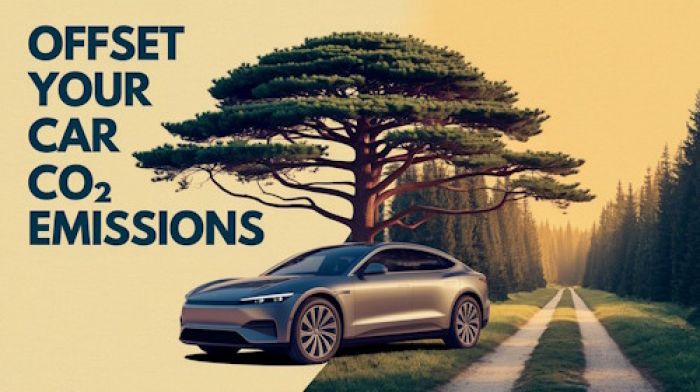Ecoboost is a series of engines produced by Ford that are designed to achieve increased fuel efficiency and reduced emissions while delivering similar power to larger engines. If you have a Ford EcoBoost, you might be wondering how to get the most out of this engine. How far can you push the fuel economy of this car?
Key features and my opinion about the engine
- Production years:2010-now
- Average lifespan of 3.5L EcoBoost:190,000-220,000 miles
- Fuel supply type:direct injection
- Power range:310-660 hp
- Fuel efficiency:average
- Engine block material:aluminum
- Engine reliability score:medium
- The most common problems:intercooler problems, timing chain stretching, carbon buildup on intake valves, coolant and oil leaks.
.jpg)
What is the Fuel Economy of the EcoBoost Like?
The EcoBoost promises increased fuel economy through a combination of engine technologies that are aimed at maximizing the power output and efficiency of the engine. Some of these features are turbocharging, gasoline direct injection, and variable camshaft timing. The overall effect of these technologies is that the 3.5L EcoBoost is more economical than most comparable engines.
- Fuel Economy
Before we take a look at the miles per gallon (MPG) statistics for the EcoBoost 3.5L, we need to consider that certain car types will naturally be more fuel efficient than others. For example, a sedan will usually have better MPG stats than a pickup truck. For the sake of comparison, we will compare the fuel economy of a Ford F-150 with a 3.5L EcoBoost engine to the average fuel economy of a full-size pickup truck.
The average fuel economy for a full-size pickup truck is about 16MPG. The Ford F-150 with the 3.5L EcoBoost engine has a fuel economy of 18MPG in the city, and 24MPG on highways.
It's clear from these numbers that the 3.5L EcoBoost engine is more economical than the average car with a similar chassis.
- Performance
What's impressive is that the EcoBoost manages this increased fuel economy without sacrificing performance. The engine puts out 400 horsepower and 500 lb-ft of torque, along with improved fuel efficiency.
- Emissions
The EcoBoost engine promises a 15% reduction in greenhouse emissions. This makes it much more environmentally friendly than other options.
The engine is capable of this based on the combination of technology that Ford has implemented in the EcoBoost.
What Makes the EcoBoost Engine Different?
The Ford EcoBoost engine is designed to reduce emissions and improve fuel economy without sacrificing power. To accomplish this, Ford has designed a direct-injection, turbocharged engine that focuses on generating power with high fuel efficiency.
Here are the aspects of the EcoBoost engine that set it apart from other engines.
1) Turbocharger
The Ecoboost uses a turbocharger to improve fuel efficiency, lower emissions, and increase power output.
The turbocharger work using a turbine to compress the engine's intake air. This forces more air into the combustion chamber and ensures that fuel is burned as efficiently as possible.
The turbine is rotated using the engine's exhaust gas, which improves efficiency, as the energy for the turbine comes from the engine's waste.
Since the engine is taking in more air, the fuel is burned more efficiently. This means that the engine is capable of generating more power using less fuel.
2) Direct Injection
Direct injection works by spraying the fuel directly into the combustion chamber. Spraying fuel into the chamber at high pressure allows for a higher compression ratio, which results in better combustion and more power.
Unlike normal fuel injectors, which operate at about 45psi, direct injectors operate at several thousand PSI. This results in thorough fuel optimization, which along with the compressed air from the turbocharger, creates optimal combustion conditions in the combustion chamber.
3) Variable Camshaft Timing
Variable Camshaft Timing optimizes fuel usage in the engine at all engine speeds. It does this by adjusting how far the cylinders open. This regulates the fuel intake based on engine speed.
4) Auto Start-Stop
Auto start-stop turns off the engine automatically after prolonged periods of idling. This helps to reduce emissions and improve fuel efficiency during stop-and-go traffic in the city.
What Factors Will Affect EcoBoost Fuel Economy?
Some EcoBoost drivers complain that they don't see the fuel savings promised by the engine. This is usually a result of other factors that affect the fuel economy of a vehicle.
- Where You Drive
Fuel economy is affected by where you drive and how often you drive there. Stop-and-go driving uses more fuel than driving on a highway. Even though the EcoBoost comes with automatic start-stop to maximize fuel efficiency, stop-and-go traffic will still result in some wastage.
- How You Drive
Pushing your car to high speeds will result in lower fuel economy. Turbochargers are most effective at increasing fuel efficiency at low engine speeds. Once the engine speed starts to get too high, the engine will need to increase fuel intake to match the power needs, regardless of whether the engine is turbocharged or not.
- Fuel Grade
The EcoBoost engine works most efficiently when it uses the proper grade of fuel. You'll have increased fuel economy if you use premium fuel, while fuel with a higher proportion of ethanol will lower your fuel efficiency.
- Maintenance
If your engine is not well-maintained, it's going to have a hard time performing its duty efficiently. Replacing the oil and air filters, making sure the tires have the correct pressure, and changing the oil will keep your fuel economy at a maximum.
- Faulty Components
Engine components like the fuel injectors and the sparkplugs are directly related to how effectively your car burns fuel. If these parts are dirty or faulty, the engine won't run as efficiently, and you'll find yourself using more fuel than usual.
How to Improve your 3.5L EcoBoost MPG
Every driver understands how good mileage keeps them from spending too much on fuel. If you have an EcoBoost engine, you'll want to make sure that you keep enjoying savings at the fuel pump.
Even if you don't have an EcoBoost, it's always a good idea to make sure that your fuel economy is as high as possible.
Here are some steps you can follow to make sure your car isn't wasting fuel.
1) Maintain Your Car
Performing regular maintenance is one of the most important ways to keep your fuel economy up. Keeping your engine in good health ensures that everything is working as it should, and no fuel wastage takes place.
Here are some important ways to maintain your car. The intervals between maintenance will depend on the instructions in the car's owner's manual.
- Replace the air filter.
- Change the oil filter.
- Change the engine oil.
- Make sure the tires are at the correct pressure.
2) Use the Right Grade of Fuel
Engines are optimized to work best with a certain grade of fuel. Make sure to use the correct grade in your car to optimize fuel efficiency.
3) Don't Carry Extra Cargo
Extra cargo means more weight that your engine has to pull. This results in extra demand on the engine, causing it to use more fuel. Make sure to drop off any extra weight that doesn't have to be in your car.
4) Minimize Air Conditioning
Air-conditioning results in a large drop in MPG. When driving under 40 mph, you can open the windows instead of using the air-conditioning. Opening the windows at this speed doesn't affect MPG, so you can use this instead of air-conditioning to save fuel.
5) Don't Drive Aggressively
Driving aggressively burns up fuel at a much faster rate. Using the accelerator less often, especially on hills, will result in improved fuel efficiency.
6) Get the Engine Tuned
Having the engine tuned can yield drastic results when it comes to improving fuel efficiency. This is especially true for older vehicles that might need a tune-up to bring them back to peak efficiency. Tuning is a complicated process, and a lot can go wrong if done incorrectly, so it's best to have your engine tuned by a professional.
Conclusion
The Ford EcoBoost promises high performance and reduced emissions and fuel consumption, and it delivers. The 3.5L engine has increased fuel efficiency over cars in the same class, despite being able to put out 400 horsepower.
The engine achieves this using a combination of a turbocharger, direct fuel injection, and variable camshaft timing. The turbocharger helps the engine take in more air, while direct injection delivers the fuel more efficiently.
Variable Camshaft Timing changes how far the cylinders open, optimizing fuel intake based on engine speed.
As long as the engine is well-maintained and given the correct grade of fuel, the Ford EcoBoost engine lives up to its name. It's an economical engine with good fuel mileage and excellent performance.
About the authors
The CarAraC research team is composed of seasoned auto mechanics and automotive industry professionals, including individuals with advanced degrees and certifications in their field. Our team members boast prestigious credentials, reflecting their extensive knowledge and skills. These qualifications include: IMI: Institute of the Motor Industry, ASE-Certified Master Automobile Technicians; Coventry University, Graduate of MA in Automotive Journalism; Politecnico di Torino, Italy, MS Automotive Engineering; Ss. Cyril and Methodius University in Skopje, Mechanical University in Skopje; TOC Automotive College; DHA Suffa University, Department of Mechanical Engineering






Add comment